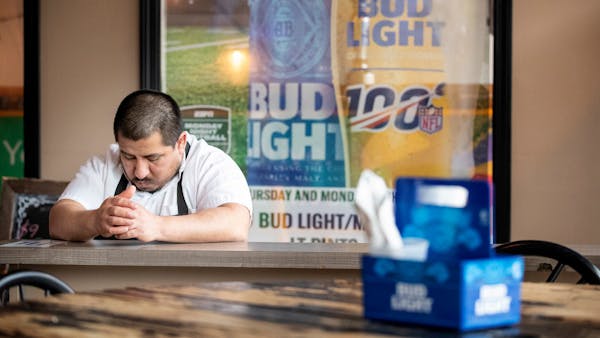Twin Cities hotels are being hit with an unprecedented drop in business due to the COVID-19 outbreak, with industry experts predicting that hotels could begin to close their doors, some for good.
"Now we are looking at occupancies within the 10% range. It just completely stops," said Ben Graves, chief executive of Graves Hospitality, which has managed and developed hotels across the country including the new Moxy hotel in downtown Minneapolis and the Intercontinental Hotel at Minneapolis-St. Paul International Airport. "Nobody ever dreamed that this could be possible."
Graves Hospitality has furloughed about 850 employees across the country, or a little more than 60% of its staff, to cut costs and allow employees to apply for unemployment benefits after occupancy numbers "started dropping like a lead balloon" due to travelers canceling their plans and large events being postponed, Graves said.
Graves, who has worked in the business since the 1990s, said the significant and likely prolonged effects of COVID-19 are hard to compare with other modern travel downturns like the SARS outbreak of 2003, the 9/11 terrorist attacks and the Great Recession.
"Nothing like this," Graves said in an interview. "This is completely unprecedented."
March is supposed to be the start of the shoulder season, the booking season between peak and low season, for Twin Cities hotels, when occupancy typically starts to climb to 70% or 80%, Graves said.
Hotels have high labor costs and large mortgages, which can make it difficult for owners to deal with extended periods of low occupancy like what may happen because of the coronavirus, he said.
Some hotels in the Minneapolis region are going to have to temporarily close their doors, Graves predicted.
"I cannot imagine that these hotels are going to stay open. … It's going to take a long time to recover from this," said Ted Leines, founder of Eden Prairie-based hotel brokerage and consultancy Leines Hotel Advisors.
Lenders may determine whether some of the hotels that close will end up going out of business for good, Leines said. He has talked to a number of clients who have told him that current occupancy numbers are under 20% in the area. Throughout the Upper Midwest, full-service hotels are the most negatively impacted, with occupancy in the single digits, he said.
"The hotels that are getting hit are the ones who are dependent on the white-collar commercial business," Leines said, as he speculated that it might take a year to rebook postponed business events.
Across the country, hospitality companies are facing widespread event cancellations and a sharp drop in corporate travel as consumers heed appeals to stay home. Numerous resorts have closed along the Las Vegas Strip, and on Tuesday, top hotel executives were scheduled to meet with White House officials to stress the need for economic recovery solutions to help the industry. Based on occupancy numbers, nearly 4 million hospitality jobs are estimated to be in danger of being eliminated this year, according to the American Hotel and Lodging Association.
Even before the virus began having a significant local effect, Twin Cities hotel demand was showing softness.
For the week ending March 7, hotel analytics firm STR reported that Twin Cities hotels had an occupancy rate of 54%, a nearly 11% drop from the same time last year. More recent numbers are likely much more dismal.
Leines said extended-stay hotels and economy, roadside hotels outside of urban cores that serve people who still need to travel, such as truckers, are performing fine. He also said he expected there would still be business opportunities for midscale hotels or resorts that cater to local travelers who may have had to cancel their more exotic vacations in favor of fishing and hunting staycations.
"There's nothing more socially distancing than being in an ice fishing house," Leines said.
Hotel development and demand, which had both undergone a boom in recent years, had begun to recently slow down, with the supply of hotel rooms in the metro increasing more than 3% in the past year, outpacing an increase in demand of nearly 2%, according to real estate firm Cushman & Wakefield's Compass report in January. About 6,700 hotel rooms are in the construction pipeline in the Twin Cities.
While it is not known how long the industry will be affected by the rapid downturn, experts have tried to encourage hospitality companies that there is a light at the end of the tunnel.
"What is clear to us looking at the past data is this: The inalienable right of the American consumer for life, liberty and the pursuit of travel will not be infringed," said Jan Freitag, senior vice president of lodging insights at STR, in a Monday webinar on the impact of the COVID-19 outbreak. "This too shall pass. We don't know when, but it will."
Nicole Norfleet • 612-673-4495
Twitter: @nicolenorfleet

Want to share info with the Star Tribune? How to do it securely

'Safe recovery sites' would offer syringes, naloxone and more to people using drugs. The plan could be in peril.
New Minnesota GOP leaders seek peace with party's anti-establishment wing

Who is Republican Lisa Demuth, Minnesota's first House speaker of color?

